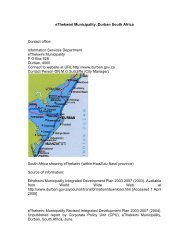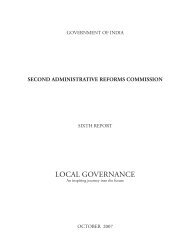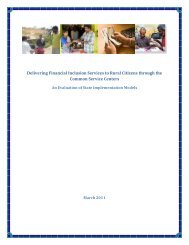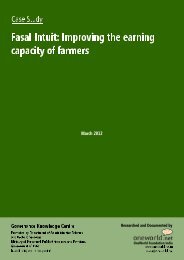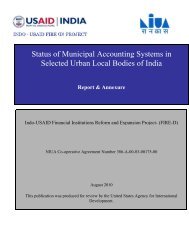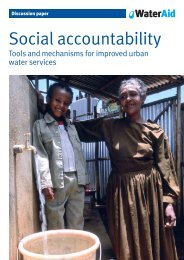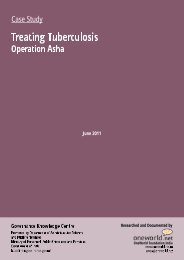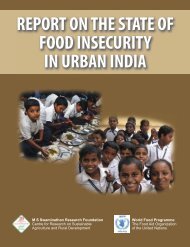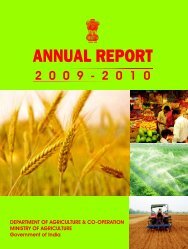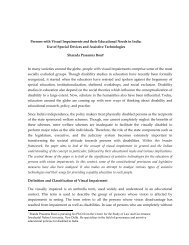Approaching equity - Indiagovernance.gov.in
Approaching equity - Indiagovernance.gov.in
Approaching equity - Indiagovernance.gov.in
- No tags were found...
You also want an ePaper? Increase the reach of your titles
YUMPU automatically turns print PDFs into web optimized ePapers that Google loves.
<strong>in</strong> l<strong>in</strong>e with nationally and <strong>in</strong>ternationally recognizedstandards as <strong>in</strong> the case of IITs and IIMs.111. Increas<strong>in</strong>gly people are gett<strong>in</strong>g work much belowtheir education or skills. This not only leads tounderemployment but generates frustration andcould result <strong>in</strong> socially undesirable results. Thus,there should be provision of appropriate and ga<strong>in</strong>fulemployment or compensation <strong>in</strong> lieu thereof for everyadult who is will<strong>in</strong>g to work.112. Greater reliance on self-employment andentrepreneurship needs to be planned and providedfor.113. The variety of jobs must be <strong>in</strong>creased and focus shouldalso be given on promot<strong>in</strong>g new emerg<strong>in</strong>g occupations.This will lead to more employment opportunities.114. Placement and post-placement help should beprovided to people.115. Dignity and equality of labour should be consideredwhile plann<strong>in</strong>g employment programmes. Duerecognition, status and appropriate remunerationshould be accorded for manual work.116. M<strong>in</strong>imum wages need to be revised and revisitedand the Plann<strong>in</strong>g Commission should ensure dueobservance of stipulated m<strong>in</strong>imum wage rates andbasic social security norms, particularly <strong>in</strong> the case ofoutsourced and <strong>in</strong>formal sector employment.117. Economic and livelihood support programmes shouldbe <strong>in</strong>troduced <strong>in</strong> conflict-affected areas with specialregard to the vulnerabilities of women and youth.118. Psycho-social support should be provided to theemployees of the outsourced and <strong>in</strong>formal sectors. Jobsafety, work<strong>in</strong>g environment, pay scale and term<strong>in</strong>albenefits are a matter of concern for employees <strong>in</strong> thesesectors. Exploitation of people employed <strong>in</strong> both thesesectors needs to be checked.119. The plann<strong>in</strong>g authorities also needs to look <strong>in</strong>to theissue of lop sided development. People migrate tothe cities, often unwill<strong>in</strong>gly, for survival. Becauseof lack of employment opportunities they have nooption but to migrate. Schemes like the MGNREGSshould be implemented throughout the countryand employment should be provided throughoutthe year. Migration should be understood as a classphenomenon and lower-class people should beprovided hous<strong>in</strong>g.xi. Muslims120. Appropriate directions should be given to theconcerned authorities to provide employment toMuslims proportionate to their size <strong>in</strong> the populationof the area under the rural employment andentrepreneurhsip programmes.121. Credit should be given to Muslims from f<strong>in</strong>ancial<strong>in</strong>stitutions, banks and various corporations for selfemployment,micro-enterprises and small and mediumscale <strong>in</strong>dustries. Measures may, therefore, be takenfor enhanc<strong>in</strong>g credit to Muslims <strong>in</strong> Priority SectorAdvances. Any shortfall <strong>in</strong> achievement of targetedamount <strong>in</strong> m<strong>in</strong>ority-specific programmes should beparked with National M<strong>in</strong>orities Development andthe F<strong>in</strong>ance Corporation. Specific programmes shouldbe funded with this amount. Separate co-operativesocieties and co-operative banks should be started forvarious Muslim artisanal groups especially for women.Formalities for registration for all theses <strong>in</strong>stitutionsand allotments of necessary funds to support these<strong>in</strong>stitutions should be made easier.122. More branches of banks should be opened <strong>in</strong> Muslimconcentrationareas.123. A policy to enhance the participation of m<strong>in</strong>orities<strong>in</strong> the micro-credit schemes of the National Bankfor Agriculture and Rural Development (NABARD)should be laid down. This policy should spell out the<strong>in</strong>tervention required by NABARD through a mix oftarget and <strong>in</strong>centive schemes based on the populationpercentage of Muslims <strong>in</strong> the village to enhance theparticipation of Muslims <strong>in</strong> micro-credit.124. Introduce a social security system for self-employedpersons <strong>in</strong> the <strong>in</strong>formal sector, especially home-basedworkers.125. Policies to <strong>in</strong>crease representation of Muslims on theboards of directors of public f<strong>in</strong>ancial <strong>in</strong>stitutions,<strong>in</strong>surance companies and public sector units shouldbe put <strong>in</strong> place.126. Special schemes to ensure hous<strong>in</strong>g for poorer sectionsof the Muslim community may be started. Specialschemes may also be formulated for allotment ofshops, PDS outlets, petrol pumps and gas agencies toMuslim youth.127. Industries should be set up and opportunities for workcreated <strong>in</strong> areas of Muslim concentration to enablethem to get employment.31




